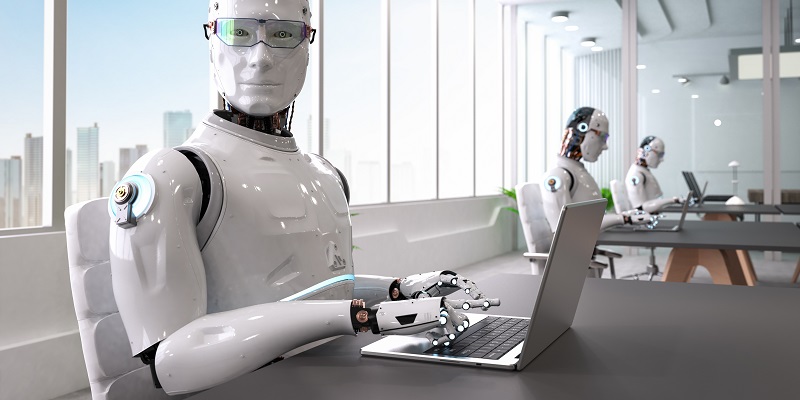Artificial Intelligence (AI) has been making waves in the technological world for a while now. AI refers to the development of machines that can perform tasks that typically require human intelligence, such as visual perception, decision-making and natural language processing. The importance of AI cannot be overstated; it has the potential to revolutionize many industries and change the way we live and work. However, as with any disruptive technology, there are concerns about its impact on employment. In this article, we will discuss the impact of AI on employment and the steps we can take to ensure that we have an AI-powered future that benefits everyone.
AI and Job Disruption
As with any technological advancement, AI will disrupt many jobs. Automation and AI-powered machines have already begun to displace humans in many industries such as manufacturing and logistics. However, it is essential to recognize that AI will also create new job opportunities. These new jobs will require new skills and knowledge, and as a result, individuals will need to retrain and acquire new skills to compete effectively in the job market.
The impact of AI on employment is significant. According to a report by McKinsey, up to 375 million workers, or 14% of the global workforce, will need to switch occupations by 2030 due to automation. This means that individuals will need to change their careers and acquire new skills to remain relevant in the job market. The report highlights the need for individuals to acquire new skills, especially in the fields of technology, science, engineering, and mathematics (STEM).
Jobs that are Less Likely to be Automated
While many jobs are at risk of automation, there are some that require creativity, empathy, and critical thinking skills which are less likely to be automated. These jobs include roles such as artists, psychologists, and social workers. Such roles require skills that AI-powered machines cannot replicate, and will require human intervention for the foreseeable future.
Advantages of Automation
Automation can bring significant advantages to businesses. With the implementation of AI-powered machines, businesses can experience improvements in efficiency and productivity, leading to reduced costs and higher profits. AI can also help businesses identify areas for improvement and streamline processes, leading to increased customer satisfaction.
Addressing Skill Shortages
One significant advantage of AI is that it can help address skill shortages. AI can be used to analyze data to identify areas of skill shortage in a particular industry, and inform policymakers and business owners of the need for further investment in training and education programs. AI can also be used to create training materials and courses that are tailored to the needs of specific industries, ensuring that individuals acquire the necessary skills and knowledge to remain relevant in the job market.
Risk of Loss of Human Skills
While automation can bring many benefits, there is a risk that it could lead to a loss of human skills. If too much of the workforce is replaced with automation, humans may become too reliant on machines and lose critical skills. It is essential to ensure that people do not lose these vital skills, and individuals are encouraged to stay up-to-date with new innovations and technologies.
Education and Training Programs
To prepare for the impact of AI on employment, we need to invest in education and training programs tailored to the needs of specific industries. These programs should focus on teaching individuals the necessary skills and knowledge required for the jobs of the future. The investment in education and training will enable individuals to reskill and transition to new industries and job roles effectively.
Encouraging the development of diverse and inclusive AI is essential. AI-powered machines should be designed with diversity and inclusivity in mind to ensure that they do not reflect or perpetuate any bias or discrimination. The development of inclusive AI can also increase job opportunities and create more diverse workplaces.
Government and policymakers have a critical role to play in managing the impact of AI on employment. Policymakers must work together with businesses, educators, and individuals to ensure that we are prepared for the changes that are coming. Additionally, policymakers need to take into account the impact of AI on different groups of people and design policies that ensure everyone can benefit from the AI-powered future.
In conclusion, AI has the potential to revolutionize many industries and change the way we live and work. While there are concerns about the impact of AI on employment, we must recognize that it will also create new opportunities. To ensure that we have an AI-powered future that benefits everyone, we need to invest in education and training programs that teach the necessary skills and knowledge required for the jobs of the future. We must also ensure that AI is developed with diversity and inclusivity in mind to create more job opportunities and a more diverse workforce. Finally, policymakers must take into account the impact of AI on employment and work together with businesses, educators, and individuals to ensure that we are prepared for the changes that are coming.

